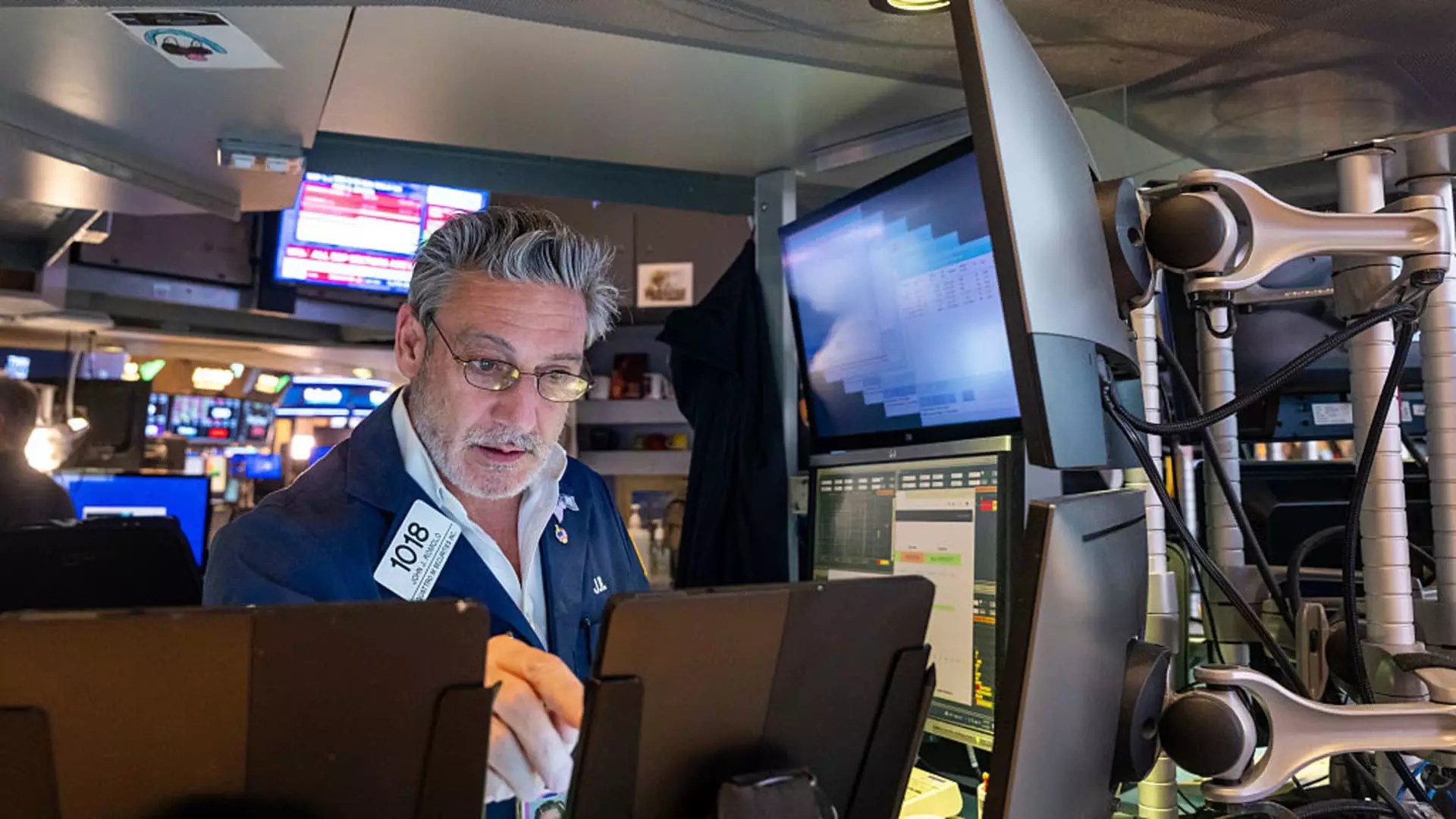In an era where the stock market is increasingly volatile and reactionary, defense stocks are displaying an enviable resilience that few sectors can match. Recent weeks have witnessed tumultuous fluctuations, as the markets reacted sharply to President Trump’s aggressive trade policies. With a backdrop of rising tariffs and global trade disputes, it may seem counterintuitive that defense stock investments are performing well. However, this anomaly highlights a crucial truth: the defense industry is distinctly insulated from the worst of the trade storm.
As tariffs began to ramp up—causing the S&P 500 to plummet by 3.5% following a notable 9% hike only a day before—defense firms like Huntington Ingalls Industries (HII) managed to chart a different course. The independence of these companies from foreign supply chains offers a robust safety net; they primarily operate domestically, allowing them to dodge the full brunt of tariffs levied by the government.
The Paradox of Economic Policy: Protectionism and Prosperity
The overarching narrative of President Trump’s policies embodies a classic case of protectionism, aiming to restrict imports while simultaneously boosting domestic production. While the broader economy quakes under the weight of rising tariffs on numerous sectors, defense companies find themselves standing tall. As trade tensions escalate, the U.S. government’s increasing focus on national security appears only to strengthen the defense sector.
Experts assert that a significant proportion of the materials used by defense contractors—upwards of 90%—comes from within the United States. This fact alone provides an extraordinary level of insulation from the adverse effects of international trade conflicts. Consequently, defense stocks remain attractive to investors looking for stability amidst uncertainty.
Political Turbulence: A Double-Edged Sword
The inherent volatility in political landscapes worldwide often incites a spike in defense spending. Conflicts in the Middle East and tensions in the Pacific Rim fuel the need for greater military preparedness, subsequently driving demand for defense outputs. When global political tensions rise, so too does the associated budgetary support for defense industries.
Analysts are observing that the Trump administration’s recent proposal of a defense budget exceeding $1 trillion for fiscal 2026 signifies a commitment to bolstering the nation’s military capabilities. This planned budget is not just a record-setting figure; it represents an increase of over $100 billion compared to the current year’s allocation. This move further cements the belief among investors that defense stocks are not merely safe havens; they are poised for significant growth.
Identifying the Leaders on the Frontlines
Within this thriving sector, certain companies are garnering attention for their potential to outperform even the already high expectations. Huntington Ingalls Industries, for example, witnessed a staggering 16% rise in stock value last month after being publicly endorsed by the President. The focal point of such interest is not just the company’s performance but a broader assertion that the U.S. must revitalize its shipbuilding sector.
Additionally, analysts from leading financial firms have singled out others, such as Northrop Grumman and L3Harris Technologies, as key players whose market potential appears promising. Both companies align well with Department of Defense priorities, offering not only solid financial returns but also technological advancements that are essential in today’s rapidly evolving defense landscape.
Market Signals: Navigating Uncertainty with Strategic Investments
The prevailing climate of uncertainty in the stock market does not preclude intelligent investing. In fact, as the economic fallout from trade tensions develops, savvy investors may find a unique opportunity. Companies within the defense sector have exhibited strength that transcends mere market fluctuations; rather, they represent a strategic play that aligns with long-term governmental priorities on defense and security.
For those assessing their portfolios amidst an unpredictable economic chapter, defense stocks present a beacon of hope. While other sectors may flounder, these companies stand at the ready to capitalize on government spending initiatives predicated on national security. The growing awareness of their critical roles makes them not only a defensive investment but also a potentially lucrative one as taxpayers’ dollars flow into defense contracts.
The resilience of defense stocks amid tumultuous economic dynamics illustrates a remarkable survival mechanism, rooted in both domestic production and political support. In these uncertain times, investing in companies tied to national defense could yield both stability and substantial returns. As global tensions and trade wars continue to shape the landscape, the defense sector is set to become an increasingly strategic priority for both policymakers and discerning investors alike.


Leave a Reply